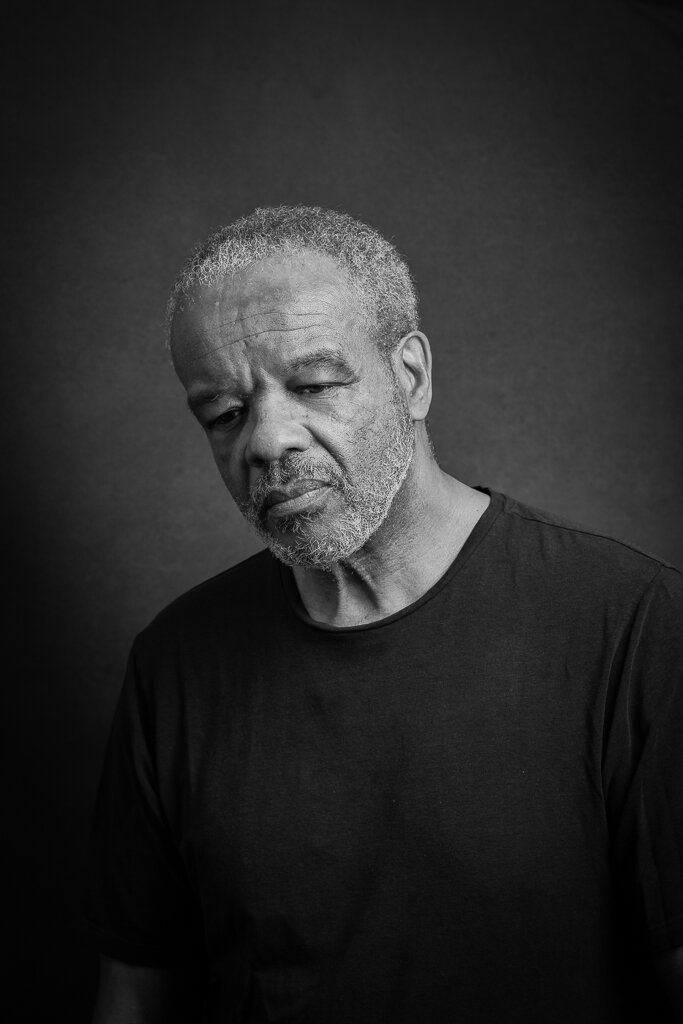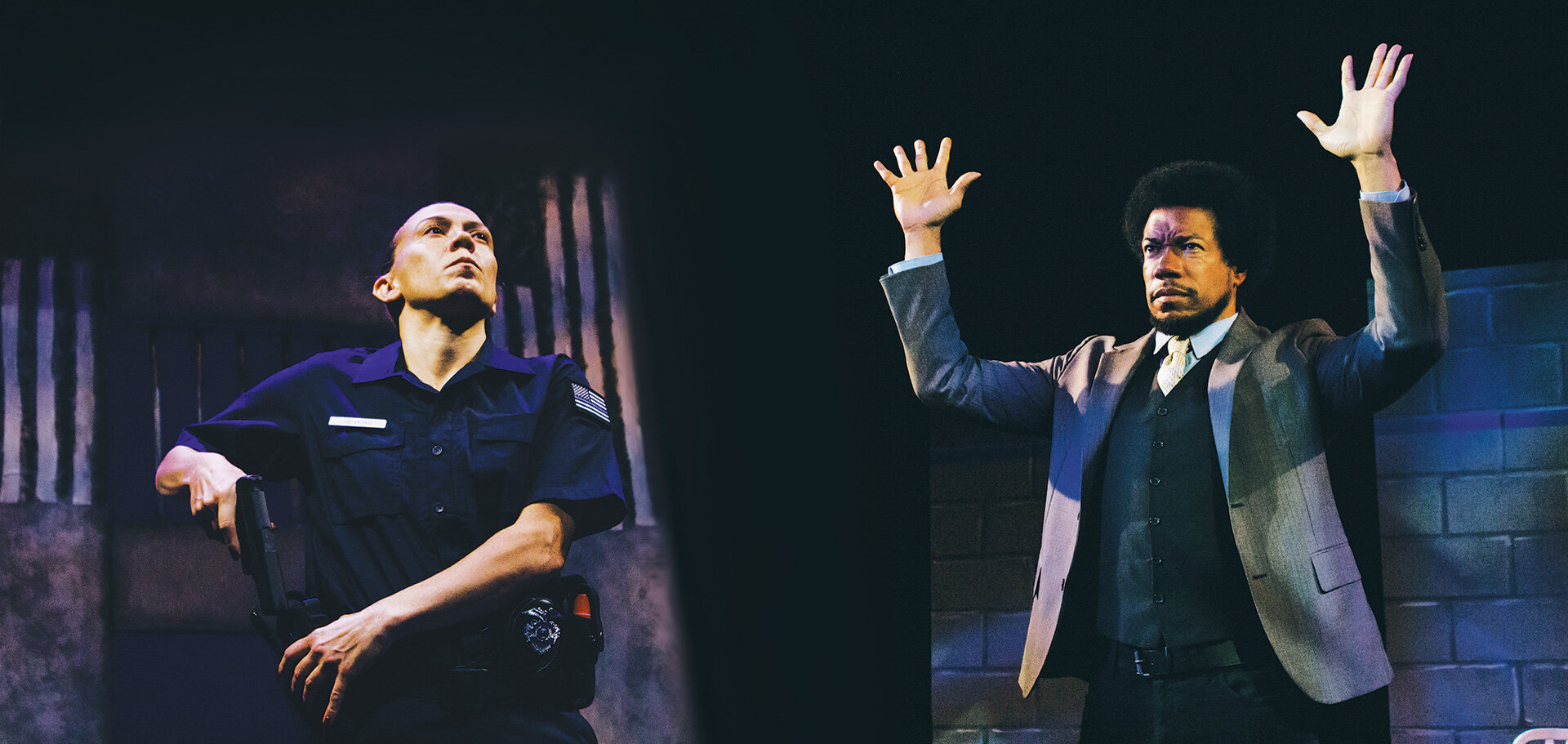Through the Red Door
How can we change anything about our world if we can’t even hold a conversation?
In the midst of extreme polarization, the Evolve experience takes on society’s toughest issues to stimulate conversations that bridge our collective divide. Ranging from police officers' relationship with the black community to the epidemic of homelessness, this project embraces highly charged topics. Combining theatre and dramatic storytelling with workshop-style audience engagement, Evolve increases our capacity to hold complex, nuanced viewpoints. This process helps participants navigate profound disagreements, transforming defensiveness into curiosity and compassion. In this conversation, we speak with the co-creator of Evolve and founder of the Red Door Project, Kevin Jones, and retired Deputy Chief of Police, Bob Day. Together, we explore how to overcome our natural resistance to change and reclaim our curiosity about others.
Listen to this episode on Apple Podcasts, Spotify, Google Podcasts, or on your favorite platform.
“Dissonance is the cognitive and emotional discomfort we feel when we hold two or more contradictory beliefs at the same time. The way out of this trap is to investigate what reality looks like on the other side.”
Key Insights & Takeaways
Conversations about tough social issues often go sideways because people are naturally defensive about their own point of view — they tend to reject new ideas and shy away from dissonance. To move beyond these protective instincts and entrenched thought patterns, we must understand the psychology of identity and the natural cycle of change.
Red Door employs a systems theory philosophy based on the premise that all systems, whether they are institutions, individuals, or cells, are subject to a simple, repeating process through which change occurs. They call this the “Protect, Expand, Evolve Cycle.”
When facing a perceived threat, “Protect” is our first impulse. Many things can be perceived as a threat: a challenge to self-image, a changing belief system, or a potential loss of status or security.
By replacing our defensiveness with curiosity, we can move from “Protect” to “Expand,” where we become open to new ideas and gain new awareness.
The end goal is to “Evolve” — to undergo a fundamental transformation in how we see ourselves and the world around us.
Becoming aware of this “protective reflex” and gaining experience moving through this cycle, we become more comfortable with dissonance and able to overcome our natural resistance to change.
When people’s defenses are lowered, they are able to engage each other in a deeper, more sympathetic way, which opens up meaningful, solution-oriented discussion.
Stories create a safe environment where people can be challenged by difficult topics, and understand other people’s experiences.
Stories can synchronize the brains of the speaker and audience members. When you hear a story, your neurons light up in exactly the same patterns as the speaker’s brain. This is called neural coupling.
Narrative transport is another amazing neural effect of good storytelling. While watching/hearing a fictional story, our brain can simulate the emotions we imagine the characters to be feeling. Soon, we begin to feel those emotions, as well.
Stories can change your brain’s chemistry. Oxytocin is the neurochemical associated with empathy (which can be released via narrative transportation). When we release oxytocin we become more generous and compassionate.
The brain responds to stories much more than factual information. In FMRI studies, stories can light up the brain as if the events were actually happening.
To hold an audience’ attention, there must be tension in the story. The characters must be dynamic (they experience a change).
About our guests
Kevin Jones is the Red Door Project’s Artistic Director, CEO and Co-Founder. He is an award-winning actor and director who has performed on the American stage for more than 40 years. Kevin is also a communication, organizational and diversity consultant with over 25 years’ experience working with private and non-profit organizations. Kevin’s approach utilizes complex systems thinking, cognitive mechanics and organizational change theory.
Connect with Kevin:
Website | Email | LinkedIn | Instagram | Twitter
Bob Day is the Red Door Project’s Director of Strategic Initiatives. He began his law enforcement career in 1988, retiring in May 2019 as the Deputy Chief of the Portland Police Bureau. Bob has been recognized several times by the Police Bureau and community organizations for his innovative ideas in crime reduction strategies and his commitment to leading difficult conversations about race and criminal justice. Bob’s 30+ years of policing experience includes assignments such as training division commander, precinct commander, Assistant Chief of the Operations Branch, and Deputy Chief.
The Red Door Project uses the transformative power of storytelling to challenge, connect, and co-create the world we all want to live in. The Evolve Experience is a unique arts-based workshop designed for criminal justice professionals and community stakeholders that combines dramatic storytelling and audience engagement. The Evolve Experience is built first on theatre — dramatically-crafted stories based on the lived experiences of African Americans, police officers struggling to make sense of a system that may not be serving either the public or the officers themselves, and other individuals who live at the intersection of race and criminal justice. The theatrical portion of the program is accompanied by a curriculum designed to encourage participants to self-reflect and listen to others who may have different or polarizing viewpoints. This increases capacity for the complex and nuanced thinking required to address critical social issues.
Links & resources from this episode:
Red Door's model for change: Protect, Expand, Evolve
An overview of the Evolve program.
Kevin Jones TED Talk: Evolving Through Dissonance
How Portland’s Black Community and Police are Sharing Their Stories Through Theater
The Red Door Project Pushes Boundaries with a Purpose
Method Acting: To play someone you must love someone
Your Brain on Stories: Psychology Today



